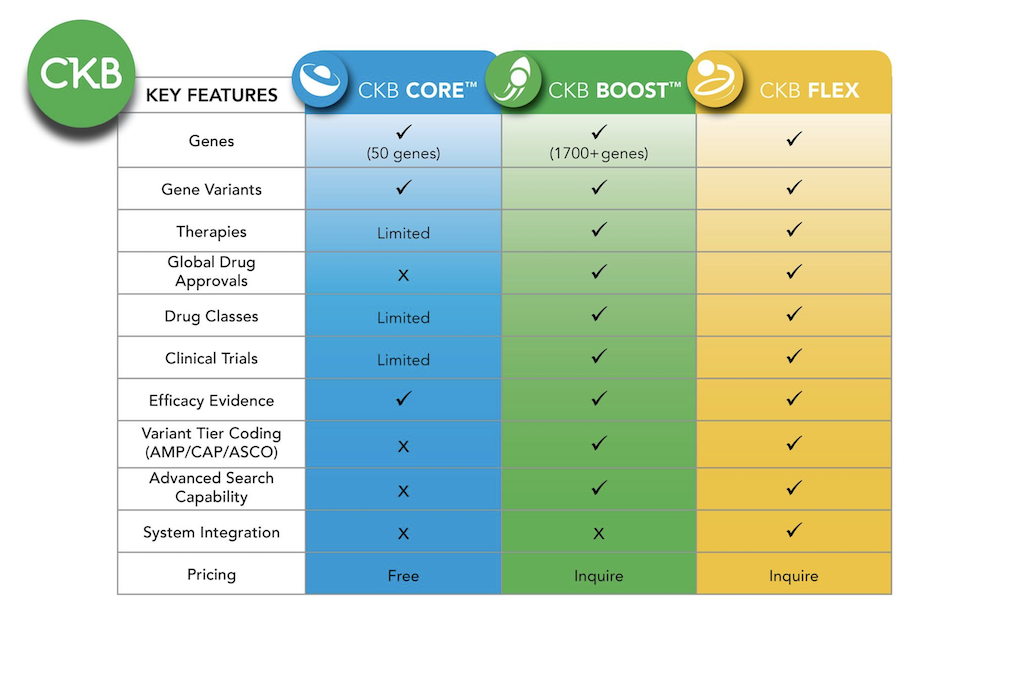Gene Detail
Contact
Missing content? – Request curation!
Request curation for specific Genes, Variants, or PubMed publications.
Have questions, comments, or suggestions? - Let us know!
Email us at : ckbsupport@jax.org
| Gene Symbol | POLD1 | ||||||||||
| Synonyms | CDC2 | CRCS10 | IMD120 | MDPL | POLD | ||||||||||
| Gene Description | POLD1, DNA polymerase delta 1, catalytic subunit, is the catalytic subunit and the largest of four subunits that form the DNA polymerase delta holoenzyme, which mediates DNA replication (PMID: 27320729) and repair (PMID: 30625304). Germline and somatic mutations in POLD1 have been identified in a variety of human cancers (PMID: 27320729), including colorectal cancer (PMID: 31769227) and lung cancer (PMID: 31673068), and may be associated with high tumor mutational burden and response to immunotherapy (PMID: 31741177, PMID: 31673068, PMID: 31415061, PMID: 30524909). | ||||||||||
|
|||||||||||
Additional content available in  CKB BOOST
CKB BOOST
